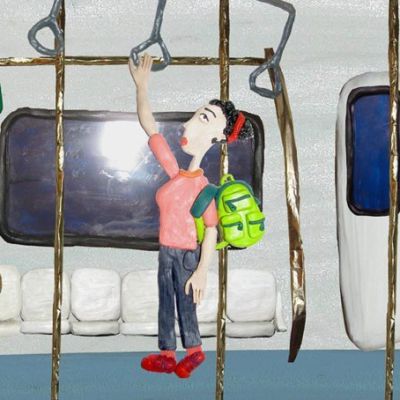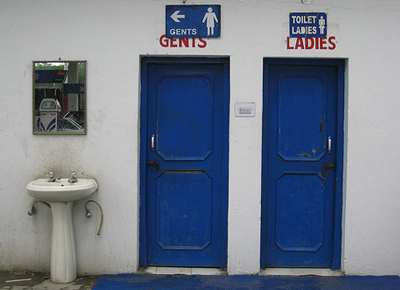Mobility and Sexuality 2
In our mid-month issue, Mahika Banerji describing herself as being ‘massively function-less’ and as having ‘no mobility’, takes us into her world, not a world of sob stories but one that holds promise of fulfillment…
On a larger scale, my non-normative sexuality is confined to tiny spaces, influenced by fear of impending violence, rejection and revulsion, even when one is privileged enough to live in a metropolitan city.
केवल एक तरह से जीवन जीने, या अपनी यौनिकता को अनुभव करने से अधिक और भी बहुत कुछ होता है। इसके लिए ज़रूरी है कि पहले तो हम अपने मन में इसे स्वीकार करें और इसके लिए तैयार हों।
I said “excuse me”, walked past them and then never looked back to see the look on their faces. And then without a thought, I reached the destination and said loud and clear, “Woman’s seat”, which was a gesture to say “give me the seat, because it is a woman’s seat and you are a man sitting on it.”
People make assumptions about both mobility and sexuality and quite often reduce them to a few simple, unidimensional concepts. Sexuality is reduced to sex, marriage and the gender binary. Mobility is reduced to ableist concepts of body and capacity, and access to, or the possession of, a vehicle to get from point A to B.
A smile could just be an innocuous communication, expressing politeness or warmth. But for a woman out in public, her smile is often misconstrued
It is this camaraderie with sexualness that made my mother uncomfortable about my comfort with lipsticks. Stains become metonyms for the woman herself, and her sexuality. It is possible that this stain might stay on someone’s mind as they encounter a stained cup. It is possible that even if they never have seen the person, they would now be compelled to imagine them.
आज के समय में जब विश्व में एक स्थान से दूसरे स्थान पर जाने की घटनाएँ बढ़ी हैं और सामाजिक मान्यताओं में भी बदलाव आया है, ऐसे में केवल विवाह ही, महिलाओं के एक जगह से दूसरी जगह प्रवास करने का एकमात्र कारण नहीं रह गया है।
People in the city move from their homes to their workplaces and back to their homes. The production of this everyday rhythm of the city makes people accustomed to the sexual overtones that come with it.
Our sexuality is often in flux – being manoeuvred (sometimes in ways we cannot control) by the crashing waves of societal expectations, circumstances, and our own choices and experiences. But the world continues to uphold a fixed, rigid idea of sexuality, and continues to confine us within this idea, and therein lies the conflict.
Jeeja Ghosh is a disability rights researcher and activist, feminist, parent, writer, scholar and trainer. Her lived experience of disability, and of standing up against discrimination and injustice, is at the core of her work and insights. Shikha Aleya interviews Jeeja about mobility across divides other than the physical.
There is a direct correlation between mobility and sexuality. Women’s mobility does get hampered because of both social as well as economic reasons, leading to this contradictory fall in female LFPR despite a growing economy.
The patriarchal system strictly enforces gender roles and social norms that privilege men over women. This sense of male entitlement over women and girls’ bodies have insured their confinement to spaces where they are stripped of power, threatened by harassment and discrimination, and extremely vulnerable so that men get to play the role of protectors.
अलग-अलग शौचालय बनाने के अपने लाभ हैं, विशेषकर जब कि एक जेंडर को दूसरे जेंडर से खतरा महसूस होता हो। लेकिन इस पूरे कृत्य को सामान्य बना देने और इसे जेंडर भेद से दूर करने से संभव है कि महिलाओं को, जहाँ कहीं भी वे हों, प्रयोग के लिए आसानी से शौचालय उपलब्ध हो सकें।
मैं एक नॉन-बाइनरी व्यक्ति (जो जेंडर को महिला-पुरुष युग्मक तक सीमित नहीं मानते) हूँ जिसका जन्म के समय जेंडर निर्धारण…















